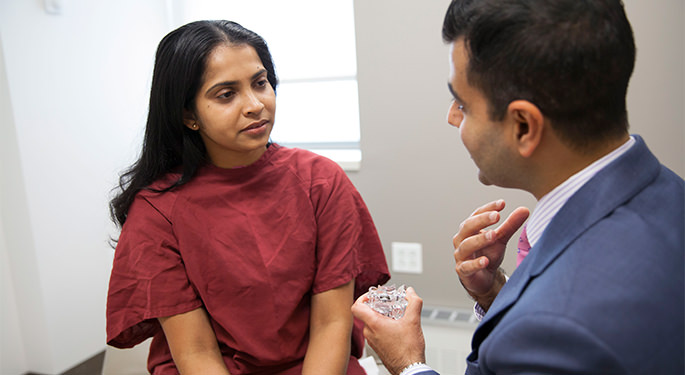
Patient Info
The helpful staff at the Spine Hospital at Mount Sinai are experts in diagnosing and treating the full spectrum of spinal conditions—and we have created useful materials to help guide you and your family in preparing and planning for treatment.
When to See a Spine Surgeon
Chances are, you will experience some form of back pain during your lifetime. You may start by seeking advice from your primary care doctor or in a medical clinic, which is appropriate for most back and neck pain. You may require pain medications, antispasmodics, anti-inflammatory drugs, and physical therapy to overcome pain and immobility.
It may be hard to figure out when to seek help from a spine surgeon. Though spine surgeons are specialists who perform surgery on the spine, many office visits may result in medical treatment—surgery is usually not considered unless conservative options to treat back pain have failed. Conservative measures may include pain medication, anti-inflammatory drugs, steroids (either by mouth or in an injection), physical therapy, and acupuncture.
If your doctor diagnoses you with a back problem, you should consult quickly with a spine surgeon if you have any of the following symptoms:
- Unrelenting pain radiating down an arm or leg
- Pain that is unrelieved after more than a week of anti-inflammatory medications or steroids
- Back pain accompanied by fever, chills, night sweats, and weight loss
- Loss of ability to move an arm or a leg or weakness in a previously functioning limb
- Inability to control urinary bladder or bowel function
Learn more about our spine care team.